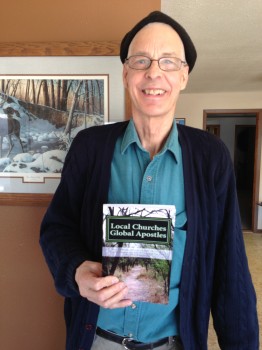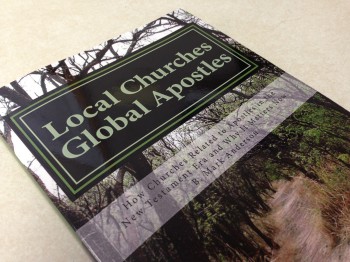
Sudden Conversion
With the question of the validity of a sudden conversion in mind let’s take a look at a recent article by Tim Challies published in the Christian Post.
“Seeking Allah, Finding God” by Tim Challies
My wife became a Christian the first time she heard the gospel. It didn’t take years, or even months or weeks of soul-searching. It didn’t take a great pilgrimage or a critical analysis of the Bible’s trustworthiness or inerrancy. A very practical person who had been raised without reference to religion, she heard the gospel at the age of eighteen, understood that it made sense of the world and her life, and responded in faith. Since that time she hasn’t seriously considered reconsidering.
But not everyone’s journey is quite so simple or straightforward. We are all different people with a very different make up. Seeking Allah, Finding Jesus is Nabeel Qureshi’s story of how he became a Christian, and his story could not be more different from my wife’s.
Qureshi was born the eldest son of Pakistani immigrants and he grew up in America and the U.K.—wherever the U.S. Navy assigned his father. His parents were devout Muslims and wherever they went, they attached themselves to a mosque and to the local Islamic community. Qureshi grew up studying, understanding and loving the Koran; he performed his prayers just like every other good Muslim. His father was an amateur apologist for Islam, so he, too, grew up with an interest in defending his faith. He loved his religion in both its theology and its practice. Read the full story . . .
God is infinitely larger than our human minds. In His greatness He boggles our minds. He never ceases to amaze us how He operates. The idea that He chooses to save some people the first time they hear the gospel stretches our thinking, to say the least. But since I’ve been practicing Chicken Evangelism, things have changed for me. Experience has shown numbers of people are prepared to receive Christ as Savior in a sudden conversion experience. Or perhaps God has ptrepared them through other witnesses or events.
Nor is Sudden Conversion a Modern Phenomenon
John Calvin once described his life-changing moment as a sudden conversion. He went on to become one of the most influential theologians in the history of the church.
At some point between 1528 and 1533 he experienced a “sudden conversion” and grasped Protestantism. “God subdued my soul to docility by a sudden conversion” was how Calvin described this experience. (http://www.historylearningsite.co.uk/John_Calvin.htm)
Tim Challies is a clear-minded pastor with a serious intellectual bent. I congratulate Tim for including the fact that his wife received salvation in what can be described as a sudden conversion. On the other hand, Nabeel Qureshi and many like him need to hear the gospel repeatedly before coming to a saving faith.
Ethan and I who write at BMarkAnderson.com have chosen to espouse all forms of Christian evangelism. It’s not that one form is better than another. There exist “different spokes for different folks.” The key is to get the evangelistic job done.
What Did Jesus Teach About Sudden Conversion?
Must the salvation process always be gradual? God is infinitely great in His variety of ways. We have found Chicken Evangelism an enjoyable and effective way to present the gospel to strangers. A surprising number of people are prepared for a “sudden conversion.” Jesus said it first.
For in this case [evangelism] the saying is true,”One sows, and another reaps.” I have sent you to reap that for which you have not labored; others have labored and you have entered into their labor (John 4:37-38).
If you have had or you know of anyone who has had a sudden conversion experience, pass it on. I’d like to hear your story.
















